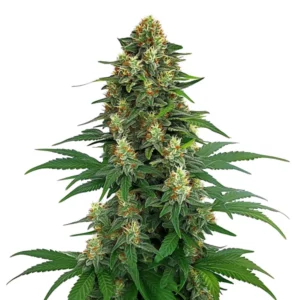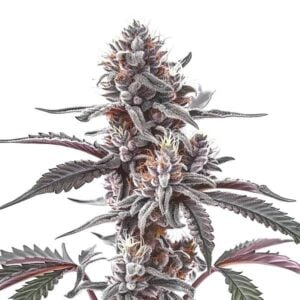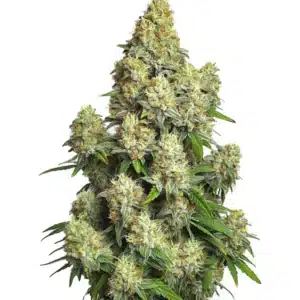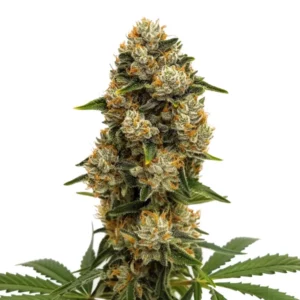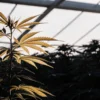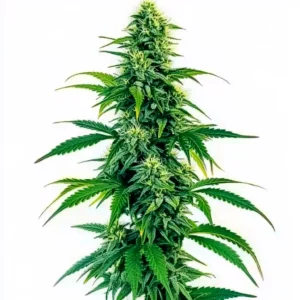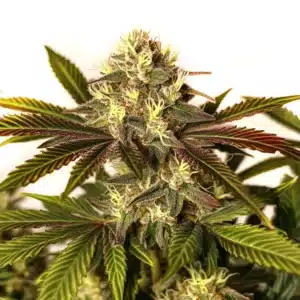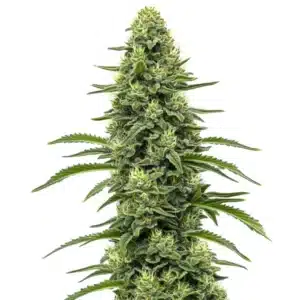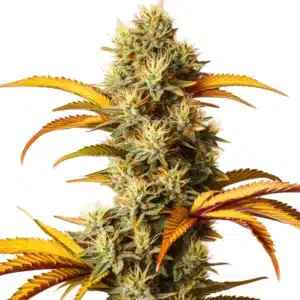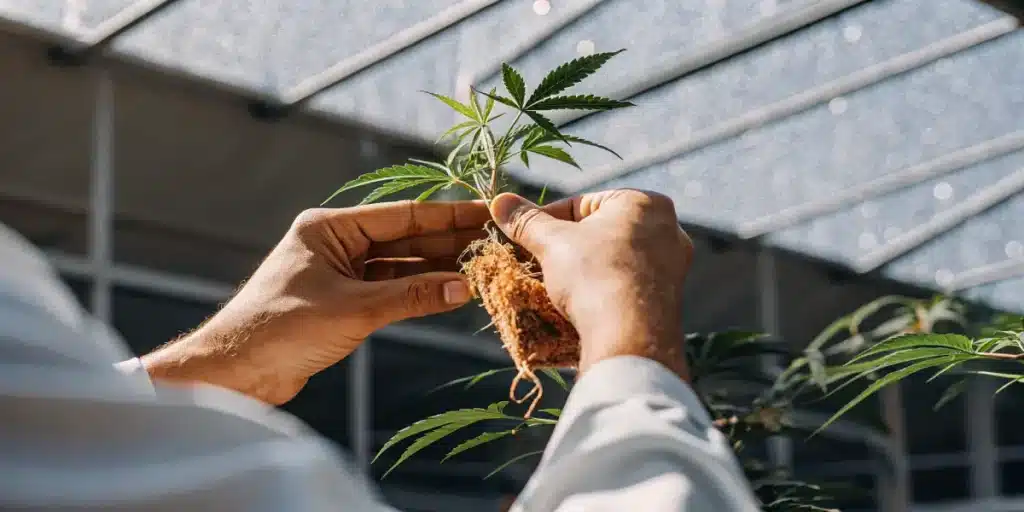
ROS Management Techniques for Cannabis Breeders
Managing reactive oxygen species (ROS) in cannabis cultivation is crucial for breeders seeking healthy, vibrant plants. ROS are molecules that can cause oxidative stress, damaging cells and affecting plant growth. Implementing effective ROS management techniques for cannabis breeders can significantly boost plant resilience and yield.
Antioxidant use in cannabis breeding is a popular method for controlling oxidative stress. Antioxidants neutralize ROS, protecting your plants from potential damage. By incorporating antioxidants into your breeding strategy, you can enhance plant health and vitality.
Recommended Strains
Blue Dream
|
|
THC | 17% - 24% (Medium) |
|
|
Type | Feminized |
|
|
Yield | High |
|
|
Phenotype | 50% Indica / 50% Sativa |
Tangie
|
|
THC | 19% - 22% (Medium) |
|
|
Type | Feminized |
|
|
Yield | High |
|
|
Phenotype | 30% Indica / 70% Sativa |
Choosing the right cannabis strains is a critical part of ROS management techniques for cannabis breeders. Some strains naturally exhibit higher resilience against oxidative stress. For instance, the Blue Dream strain from Blimburn Seeds is known for its robustness and ability to withstand environmental stresses, making it an excellent choice for breeders focusing on ROS mitigation.
Strategies for Controlling ROS in Cannabis
Various strategies exist for controlling ROS in cannabis plants. One effective approach is optimizing light exposure. Light can increase ROS production, so managing light intensity and duration is crucial. Providing the right amount of light helps minimize ROS levels, promoting healthier plant growth.
Another strategy for controlling ROS in cannabis is maintaining an optimal nutrient balance. Nutrients like magnesium and calcium play a role in ROS detoxification. Ensuring your cannabis plants receive a balanced supply of these nutrients can reduce oxidative stress and enhance overall plant resilience.
Additionally, regular pruning can help manage ROS levels by improving airflow and light penetration through the canopy. This practice not only reduces the chance of mold and disease but also promotes better energy distribution within the plant, leading to improved growth and resilience. Pruning is an essential part of ROS management techniques for cannabis breeders.
Utilizing growth regulators can also aid in ROS management. These substances can help modulate plant physiological responses, reducing ROS production and enhancing plant defenses. When used correctly, growth regulators are a powerful tool for reactive oxygen species mitigation in cannabis cultivation.
Enhancing Cannabis Plant Resilience Against ROS
Enhancing cannabis plant resilience against ROS involves using robust strains and optimizing growing conditions. For example, the GG4 strain from Blimburn Seeds is renowned for its hardiness. This strain can thrive in various environments, making it ideal for breeders focusing on managing oxidative stress in cannabis plants.
Incorporating environmental controls is another effective technique. Temperature and humidity levels can influence ROS production. By maintaining stable conditions, you can reduce the likelihood of oxidative stress, ensuring your plants remain healthy and productive.
Soil health is also a key factor in enhancing cannabis plant resilience against ROS. A healthy soil ecosystem supports beneficial microbial activity, which in turn aids in nutrient uptake and stress reduction. This symbiotic relationship is crucial for managing oxidative stress in cannabis plants effectively.
Integrating companion planting techniques can further improve plant resilience. Certain companion plants can provide additional shade, regulate humidity, and release natural antioxidants into the soil, thereby supporting ROS management techniques for cannabis breeders.
Promos & Deals
Reactive Oxygen Species Mitigation in Cannabis Cultivation
Reactive oxygen species mitigation in cannabis cultivation is essential for achieving high-quality yields. Using beneficial microbes is a natural way to mitigate ROS. These microbes enhance nutrient uptake and strengthen plant defenses, reducing the impact of oxidative stress.
Implementing a robust irrigation schedule is another effective mitigation strategy. Overwatering or underwatering can lead to stress, increasing ROS production. Consistent watering practices help maintain plant health, reducing oxidative stress and promoting vigorous growth.
Regular soil testing can identify deficiencies or excesses in nutrient levels, allowing for precise adjustments that reduce oxidative stress. This approach is part of comprehensive ROS management techniques for cannabis breeders, ensuring plants receive all they need for optimal growth.
Advanced monitoring systems can further aid ROS mitigation. By using sensors to track environmental factors such as light, temperature, and humidity in real-time, breeders can make informed adjustments that prevent stress and promote healthy plant development.
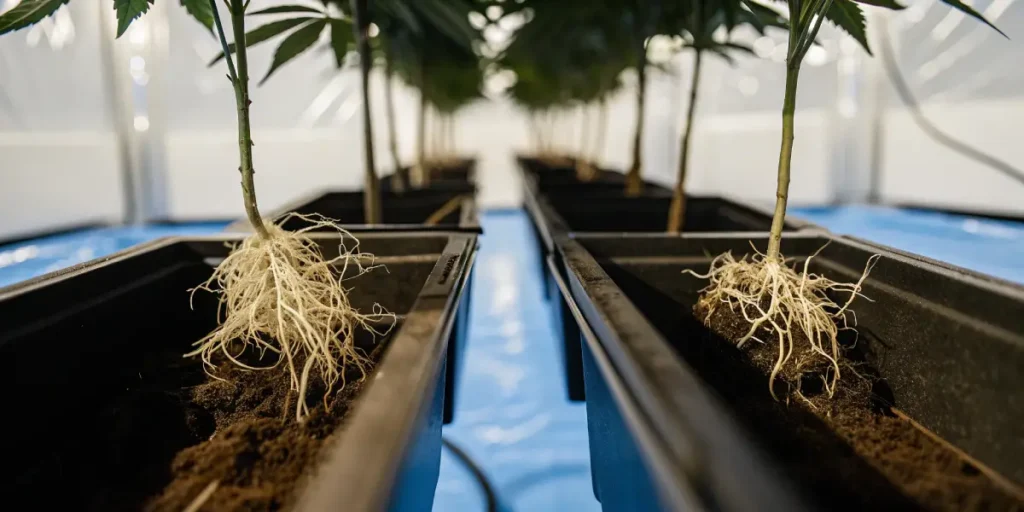
Antioxidant Use in Cannabis Breeding
Antioxidants play a significant role in cannabis breeding, offering a line of defense against ROS. Natural sources of antioxidants, like vitamin C and E, can be incorporated into plant care routines. These vitamins help neutralize ROS, protecting plant cells from oxidative damage.
Using strains with high antioxidant properties can also be beneficial. The Tangie strain from Blimburn Seeds is known for its rich terpene profile, contributing to its antioxidant properties. Breeding with such strains can enhance your plants’ natural resilience against oxidative stress.
Foliar feeding with antioxidant-rich solutions can provide immediate relief to stressed plants. This method allows for rapid absorption of nutrients and antioxidants directly through the leaves, offering a quick response to oxidative challenges.
Moreover, integrating bio-stimulants into your breeding program can enhance antioxidant activity within the plants. These natural substances boost plant metabolism and stress tolerance, making them valuable in the context of antioxidant use in cannabis breeding.
FAQs
What are ROS management techniques for cannabis breeders?
ROS management techniques for cannabis breeders involve strategies to control reactive oxygen species and mitigate oxidative stress in plants. These techniques include optimizing light exposure, maintaining nutrient balance, and using antioxidants. By implementing these methods, breeders can enhance plant health and yield.
Choosing robust cannabis strains also plays a crucial role in managing ROS. Strains like Blue Dream, GG4, and Tangie from Blimburn Seeds are known for their resilience, making them popular choices for breeders focused on reducing oxidative stress and improving crop success.
Incorporating sustainable practices such as organic soil amendments and natural pest control can further support ROS management efforts. These practices help maintain a balanced ecosystem around the plants, reducing the likelihood of stress-induced ROS production.
Educating oneself about the latest advancements in plant physiology and stress management can also enhance the effectiveness of ROS management techniques for cannabis breeders. Staying informed allows breeders to adopt innovative strategies and improve their cultivation outcomes.
How can antioxidants benefit cannabis breeding?
Antioxidants are vital in cannabis breeding as they neutralize reactive oxygen species, preventing cellular damage and promoting plant health. By incorporating antioxidants into breeding practices, breeders can enhance plant resilience, ensuring better growth and productivity.
Using antioxidant-rich strains such as Tangie can further support breeding efforts. These strains naturally exhibit higher resistance to oxidative stress, making them ideal for breeders looking to improve plant robustness and yield quality.
Antioxidants can also improve the overall quality of cannabis products. By reducing oxidative damage, these compounds can enhance the flavor, aroma, and potency of the final product, providing a competitive edge in the market.
Moreover, the use of antioxidants aligns with sustainable cultivation practices. By reducing the need for synthetic chemicals and enhancing natural plant defenses, breeders can achieve healthier, more environmentally friendly production.
Why is managing oxidative stress important in cannabis plants?
Managing oxidative stress in cannabis plants is crucial as it directly impacts plant health and productivity. Oxidative stress can lead to cellular damage, stunted growth, and reduced yields. By controlling oxidative stress, breeders can ensure healthier plants and more abundant harvests.
Effective management techniques, such as using antioxidants and optimizing growing conditions, can significantly reduce the effects of oxidative stress. This approach enhances plant resilience, leading to more successful cannabis cultivation.
In addition to improving yield, managing oxidative stress contributes to the longevity of the plants. Healthier plants are less susceptible to diseases and pests, reducing the need for interventions and lowering overall cultivation costs.
Finally, addressing oxidative stress supports the genetic potential of cannabis plants. By minimizing stress factors, breeders allow the plants to express their full genetic capabilities, resulting in exceptional quality and performance.
What strategies help control ROS in cannabis cultivation?
Several strategies can help control ROS in cannabis cultivation, including optimizing light exposure and maintaining a balanced nutrient supply. These strategies minimize ROS production, reducing oxidative stress and promoting robust plant growth.
Using cannabis strains with high resilience, such as GG4, also contributes to effective ROS control. These strains are better equipped to handle environmental stresses, making them ideal for breeders focused on managing oxidative stress in their plants.
Implementing integrated pest management (IPM) techniques can also control ROS levels. By reducing pest-related stress, IPM helps maintain plant health and prevent unnecessary oxidative damage.
Finally, regular training and workshops for growers on the latest ROS management techniques for cannabis breeders can enhance the overall effectiveness of these strategies, ensuring consistent and high-quality cultivation outcomes.
How do robust cannabis strains aid in ROS management?
Robust cannabis strains, like those from Blimburn Seeds, play a significant role in ROS management by exhibiting high resilience against oxidative stress. These strains can withstand various environmental stresses, reducing the likelihood of ROS-related damage.
Breeding with robust strains enhances overall plant health and productivity. By selecting strains known for their resilience, breeders can effectively manage ROS, ensuring successful cultivation and high-quality yields.
These robust strains also offer genetic diversity, which can be crucial in developing new varieties with enhanced resistance and other desirable traits. This makes them an invaluable resource for breeders looking to improve their stock.
Moreover, robust strains can serve as a benchmark for evaluating the effectiveness of different ROS management techniques. By observing how these strains perform under various conditions, breeders can refine their strategies and optimize their breeding programs.



